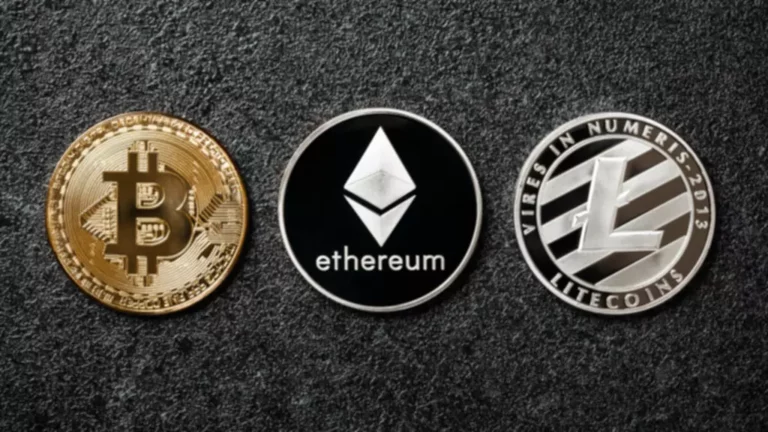If a witness loses credibility, it might impact their ability to contribute to the consensus process effectively. DPoS introduces a more predictable schedule for block production, aiding builders and users in anticipating when transactions might be confirmed. Elected delegates are incentivized to act truthfully and effectively through rewards. Not Like PoW, which entails energy-intensive mining processes, DPoS considerably reduces the environmental impression by eliminating the need for in depth computational energy. DPoS demonstrated notable successes in phrases of scalability and transaction velocity, addressing some of the limitations of PoW.
What Exactly Is Delegated Proof Of Stake?
Delegated Proof of Stake (DPoS) is an innovative consensus mechanism that mixes efficiency, scalability, and decentralized governance. Stakeholders are people or entities that hold cryptocurrency tokens and have the right to vote for delegates. This model stamps out central authorities like banks such that individuals or community nodes collectively confirm that the info entered into the blockchain is legitimate. And for this to work, the community must incorporate a means of harmonizing all of the copies of the ledger held by particular person members.

Nonetheless, it additionally faced criticisms, particularly concerning centralization, because of the relatively https://www.xcritical.com/ small number of elected witnesses. On dYdX Academy, we break down the most recent Web3 ideas and blockchain technologies in dozens of clear, easy-to-grasp guides ideal for BTC newbies. In conclusion, Delegated Proof-of-Stake is an advanced model of the traditional Proof of Stake and Proof of Work. Whereas there were certain limitations in the Proof of Work and Proof-of-Stake, development of Delegated Proof of Stake came into image. DPOS is way sooner than the traditional Poof of Work and Proof of Stake, with larger sustainability and democratic nature that makes the complete means of Delegated Proof of Stake safer.
TRON goals to offer a bunch of various purposes to customers, from decentralised finance (DeFi) to streaming companies to music. Whereas DPoS has many similarities to PoS, the primary distinction is that it uses a extra democratic approach and allows customers who stake to vote for which delegates they want to confirm blocks. Proof of Stake (PoS) was first discussed in July of 2011 during a Bitcointalk discussion board, with the intent of finding a way to process and verify blocks more efficiently. Thereafter, Daniel Larimer conceived DPoS in 2013 and introduced it in 2014 as a modified version of the standard Proof of Stake (PoS) consensus mechanism. Tron – Based by Justin Sun, Tron is an economical platform where delegates are referred to as Tremendous Representatives (SRs).
Staking is the method of locking your cryptocurrency to support a blockchain community. Lower energy use (eco-friendly)Staking supports blockchain networks without the large power demand of mining. For instance, Ethereum’s switch to proof-of-stake decreased its vitality use by over ninety nine.95%.

In other words, users turn out to be eligible to become validators after they lock property on the blockchain. In contrast, dPoS enables a democratic system whereby token holders elect validators. Since dPoS assigns transaction verification roles to a handful of participants Proof of work, the block creation time – the time it takes to add a brand new block of transactions – is often shorter. It provides fast block affirmation times, high scalability, and power effectivity in comparison with consensus algorithms like PoW. DPoS also permits stakeholders to participate in the governance and decision-making processes, selling decentralization and transparency. There are several forms of consensus mechanisms, the initial one Proof of Work received a greater substitute – Proof of Stake as it consumes decrease vitality and cost.
Contrarily, PoS and DPoS require fewer assets and are, by design, more sustainable and eco-friendly. To perceive how Delegated Proof of Stake works, one must first grasp the fundamentals of the Proof of Work and Proof of Stake algorithms that preceded it. Since then, he has assisted over a hundred companies in a variety of domains, together with e-commerce, blockchain, cybersecurity, online advertising, and much more. In his free time, he likes playing games on his Xbox and scrolling through Quora. DPoS requires a massive quantity of interested and well-informed delegators who remain energetic. This means researching the delegates you propose to vote for and dividing your delegation among a number of delegates to distribute your dangers.
- This democratic strategy improves block verification and reduces the variety of active validators, thereby rising the speed and effectivity of blockchain networks.
- These cash are used by the network to resolve who will get to substantiate new transactions.
- It ought to be noted that in case a delegate cannot create the block in his flip, he should wait for the following flip and will lose his flip.
- If a group of delegates colludes or types alliances, they could compromise the integrity of the blockchain by performing in their collective interest rather than the network’s well-being.
- BitShares — A decentralised platform designed for world funds, this project was co-founded by Daniel Larimer in 2013 and created in 2014.
- However, even DPoS isn’t exempt from shortcomings, notably regarding points related to decentralization and collusion.
The DPoS mannequin, however, limits the number of validators per transaction to small teams of delegates. Although token holders who vote on DPoS networks are technically in command of the blockchain, they do not directly participate in transaction validation unless chosen as delegates. In Accordance to crypto updates as of October 13, 2023, the digital asset platform LBank Exchange enabled the listing of Ethereum Categorical (ETE). Additionally, Ethereum Categorical supports cross-chain communication to reinforce interoperability inside the blockchain ecosystem.
Nonetheless, challenges remain, including centralization dangers and potential voter apathy, which may undermine the system’s integrity. As developers work to address these issues, the adoption of better mechanisms to reinforce accountability and participation in DPoS shall be crucial for its sustained success. WAX (Worldwide Asset eXchange) uses DPoS to facilitate the trading of digital belongings.
How Does Solana Staking Work?
Blockchain know-how is the backbone of cryptocurrency, enabling computer systems to broadcast, verify, and publish accurate transactions without centralized intermediaries. Although all cryptocurrencies depend upon blockchain systems for secure and efficient benefits of delegated proof-of-stake operations, every crypto project puts a novel spin on attaining peer-to-peer (P2P) consensus. DPOS has finite elected delegates numbering from 20 to 100 whereas Proof of stake chooses its validators on the idea of the amount of crypto staked. The consensus is achieved when a block is confirmed by a predetermined number of delegates. This ensures the community remains safe and that blocks are added in a well timed manner.
How Much Can You Earn From Staking?

This is particularly true for blockchains that depend on a handful of witnesses to verify transactions. And so, the need for energy-efficient alternate options to PoW birthed the Proof-of-Stake mechanism. In Contrast To PoW, Proof-of-Stake requires customers to stake certain crypto property to show their dedication to changing into validators. Some initiatives employ varied consensus mechanisms, similar to Delegated Proof-of-Stake (DPoS), showcasing the potential advantages they bring to a blockchain.
You delegate your staked cryptocurrency to a validator as an alternative of running your individual node. It’s low-effort but nonetheless gives token holders a task in the staking process. DPoS streamlines the block validation process, leading to faster transaction affirmation instances and higher throughput than Proof-of-Work (PoW) systems. The limited number of elected delegates enhances the scalability of the community. The elected delegates take turns proposing and validating blocks of transactions. Unlike traditional Proof-of-Work (PoW) mechanisms, where miners compete to solve complex puzzles, DPoS streamlines the block manufacturing process, making it extra predictable and efficient.
Customers with a smaller stake might even refuse to take part in the voting, seeing their vote as insignificant. Tracing the origins of the PoS consensus mechanism takes us again to the early days of cryptocurrency improvement. In 2012, Peercoin debuted as the primary functioning implementation of the PoS mechanism. Fast forward to 2013, Daniel Larimer conceived the idea of DPoS, and subsequently, in 2014, DPoS was launched as a modified model of the usual PoS algorithm. Then, the first iteration of Delegated Proof-of-Stake, BitShares, launched in 2015. The particular implementations and workings of PoS can differ significantly between completely different blockchains.
Acknowledged for its robust security via cryptographic puzzles, PoW includes miners competing to resolve complex mathematical issues to validate transactions and add new blocks to a blockchain. While PoW has been instrumental in the success of cryptocurrencies like Bitcoin, its energy-intensive nature has sparked debates around sustainability. This novel approach makes DPOS incredibly efficient, enabling quicker transaction times, better scalability and larger vitality efficiency compared to conventional proof of labor blockchains like Bitcoin.